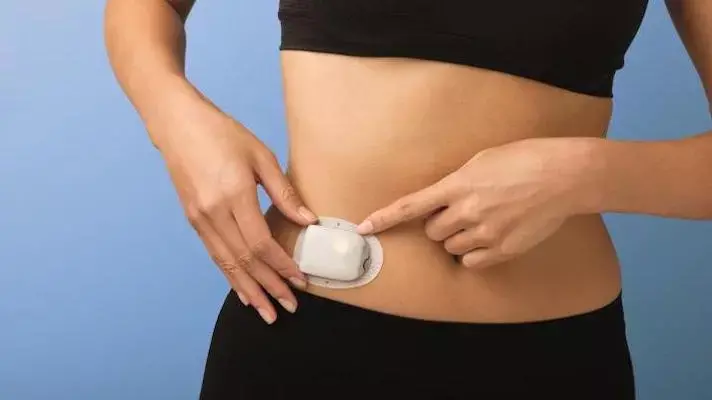- Home
- Medical news & Guidelines
- Anesthesiology
- Cardiology and CTVS
- Critical Care
- Dentistry
- Dermatology
- Diabetes and Endocrinology
- ENT
- Gastroenterology
- Medicine
- Nephrology
- Neurology
- Obstretics-Gynaecology
- Oncology
- Ophthalmology
- Orthopaedics
- Pediatrics-Neonatology
- Psychiatry
- Pulmonology
- Radiology
- Surgery
- Urology
- Laboratory Medicine
- Diet
- Nursing
- Paramedical
- Physiotherapy
- Health news
- Fact Check
- Bone Health Fact Check
- Brain Health Fact Check
- Cancer Related Fact Check
- Child Care Fact Check
- Dental and oral health fact check
- Diabetes and metabolic health fact check
- Diet and Nutrition Fact Check
- Eye and ENT Care Fact Check
- Fitness fact check
- Gut health fact check
- Heart health fact check
- Kidney health fact check
- Medical education fact check
- Men's health fact check
- Respiratory fact check
- Skin and hair care fact check
- Vaccine and Immunization fact check
- Women's health fact check
- AYUSH
- State News
- Andaman and Nicobar Islands
- Andhra Pradesh
- Arunachal Pradesh
- Assam
- Bihar
- Chandigarh
- Chattisgarh
- Dadra and Nagar Haveli
- Daman and Diu
- Delhi
- Goa
- Gujarat
- Haryana
- Himachal Pradesh
- Jammu & Kashmir
- Jharkhand
- Karnataka
- Kerala
- Ladakh
- Lakshadweep
- Madhya Pradesh
- Maharashtra
- Manipur
- Meghalaya
- Mizoram
- Nagaland
- Odisha
- Puducherry
- Punjab
- Rajasthan
- Sikkim
- Tamil Nadu
- Telangana
- Tripura
- Uttar Pradesh
- Uttrakhand
- West Bengal
- Medical Education
- Industry
Tubeless insulin pump therapy tied to good glycemic control and low frequency of DKA in Diabetes

Tubeless insulin pump therapy is significantly associated with decreased rates of severe hypocalcemia (SH) and diabetic ketoacidosis (DKA) primarily in pediatric and adolescent population that is prone to these complications, finds a new study.
Despite the typical age-dependent increase in HbA1c through adolescence, glycemic control with tubeless insulin pump use compares favorably with other large registry data.In addition, high treatment retention rates were observed in patients with type 1 diabetes of all ages initiating tubeless insulin pump use.
The study has been published in Diabetes Technology & Therapeutics.
A study was conducted by a group of researchers from Germany and Austria to characterize patients with diabetes treated with a tubeless insulin pump (Omnipod® Insulin Management System; Insulet Corp., Acton, MA), and to evaluate the frequency of acute complications with long-term use of the system.
The researchers conducted the retrospective analysis of the German/Austrian Diabetes Patienten Verlaufsdokumentation (DPV) registry that included data from 3657 patients with diabetes treated with a tubeless insulin pump. Hemoglobin A1c (HbA1c) levels and frequency of diabetic ketoacidosis (DKA) and severe hypoglycemia (SH) were compared between 1-year pre- and 1 year (n = 2911) or up to 3 years (n = 1311) post-tubeless insulin pump initiation and compared with a contemporary cohort on multiple daily injections (MDI) with 3-year data (n = 1874).
The results of the study are as follows:
- Patients using tubeless insulin pump therapy had a median age of 13.7 years, diabetes duration 3.7 years, and HbA1c 7.5%.
- In patients with 3 years of follow-up data (n = 1311), the percentage with ≥1 episode of diabetic ketoacidosis (DKA) and severe hypoglycemia (SH) (Level 3, requiring assistance), and severe hypoglycemia (SH) induced coma event with prior treatment was 6.3%, 5.5%, and 1.7%, respectively.
- After 3 years of tubeless insulin pump therapy, the frequency of diabetic ketoacidosis (DKA) and severe hypoglycemia (SH) (Level 3), and severe hypoglycemia (SH) induced coma decreased to 2.2%, 4.1%, and 0.5%, respectively.
- Both diabetic ketoacidosis (DKA) and severe hypoglycemia (SH) remained significantly lower compared with MDI after adjustment in multiple regression analysis.
- High treatment retention rates (>90%) were observed.
Thus, the researchers concluded that real-world registry data document that tubeless insulin pump therapy is associated with good glycemic control and a low frequency of diabetic ketoacidosis (DKA) and severe hypoglycemia (SH) in an age group prone to acute complications.
Reference:
Declining Frequency of Acute Complications Associated with Tubeless Insulin Pump Use: Data from 2,911 Patients in the German/Austrian Diabetes Patienten Verlaufsdokumentation Registry
Dr. Shravani Dali has completed her BDS from Pravara institute of medical sciences, loni. Following which she extensively worked in the healthcare sector for 2+ years. She has been actively involved in writing blogs in field of health and wellness. Currently she is pursuing her Masters of public health-health administration from Tata institute of social sciences. She can be contacted at editorial@medicaldialogues.in.
Dr Kamal Kant Kohli-MBBS, DTCD- a chest specialist with more than 30 years of practice and a flair for writing clinical articles, Dr Kamal Kant Kohli joined Medical Dialogues as a Chief Editor of Medical News. Besides writing articles, as an editor, he proofreads and verifies all the medical content published on Medical Dialogues including those coming from journals, studies,medical conferences,guidelines etc. Email: drkohli@medicaldialogues.in. Contact no. 011-43720751


